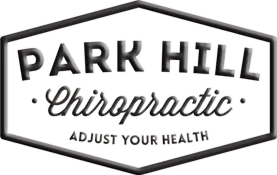The 5 Reasons to Eat Fats
Fat has been shamed over the last fifty years and has led our nation into a high carbohydrate low fat diets. These low fat diets are largely to blame for the current obesity epidemic that sky rocketed our healthcare cost and destroyed many lives in the process.
Finally people are starting to realize that fats are not bad, of course anything can be bad if you have too much, but it can actually be difficult to get too much good fat. When I mention good fats I am talking about the fat within foods like: Grass fed butter, Avocados, Coconut, Olive oil, Flax seed, Quinoa, Almonds, Pistachios, Walnuts, Pecans, Grass fed meats, Wild caught salmon and 90% Cocoa chocolate.
1. Fats Burn Fats
A 2007 study published by the American Journal of Clinical Nutrition found that consuming fatty acids can boost metabolic health. The body uses 3 macronutrients for energy: Carbohydrates, protein and fat. Fat packs more than twice the energy, per gram, than carbs or protein. When you eat a high fat diet with minimal carbs your body will start to burn fat instead of carbohydrates.
What’s more, “old” fat stored in the body’s peripheral tissues—around the belly, thighs, or butt (also called subcutaneous fat)—can’t be burned efficiently without “new” fat to help the process, according to researchers at Washington University School of Medicine in St. Louis. Dietary fat helps break down existing fat by activating PPAR-alpha and fat-burning pathways through the liver.
Think of mealtime like baseball spring training: young, hungry player (new fat) hit the field and show the general manger (the liver) that it’s time to send the old, worn-out players (subcutaneous fat) home.
2. Fat Keeps You Full longer
Fat is not easy to digest so it uses more of the body’s energy (metabolism) and it sticks around in the digestive system for more time than many other nutrients. Monounsaturated fatty acids (MUFAs) may also help stabilize blood sugar levels, according to Mayo Clinic. Meaning you feel full for a longer period of time.
In fact, diets with high amounts of omega-3 fatty acids, a type of PUFA that the body can only acquire through food, create a greater sense of fullness both immediately following and two hours after dinner than do meals with low levels of the fatty acids, according to a 2008 study from University of Navarra in Pamplona, Spain. So it is no surprise that people who are eating good fats will snack less often than those who don’t.
3. Fat Makes you Happy
Low fat foods often leave you hungry and wanting more. As it turns out we can actually taste fat, not just the sugar, salt and other goodies in our foods.
Recently researchers at Purdue University showed our tastebuds can detect fat in food, explaining why low-fat foods don’t curb fat cravings. Their research suggest fat may be a different basic taste altogether than: sweet, salty, bitter and sour. On a happy note.. Omega 3 fatty acids can boost serotonin levels in the brain. This results in improved mood, higher motivation levels, and can keep you from binge eating while dieting. According to the National Institutes of Mental Health 3.5% women and 2% men have a diagnosed binge eating disorder while millions more are emotional eaters.
4. Fat Will Build Muscle
Eating good fats and an effective exercise program will increase muscle mass faster when compared to exercising alone. An increase in muscle mass is imperative to speed up your metabolism and burning calories faster outside the gym. Researchers published a study in 2011 in the journal Clinical Science that examined the effects of eight weeks of PUFA supplementation on adults 25-45. They found that fat increased protein concentration and the size of the muscle cells in the body. Previous studies have found that Omega 3 fatty acids can mediate muscle loss due to aging and stimulate protein synthesis in humans.
5. Fat Makes Food Better For You
Vitamins A, D, E and K are the fat soluble. This means that you have to eat fat to absorb these vitamins. If your body is not absorbing nutrients properly it can lead to vitamin deficiencies leading to a number of problems but most commonly: dry skin, brittle bones, blindness, muscle aches, increased colds and abnormal blood clotting.
The fat soluble vitamins along with water soluble vitamins are keystones of maintaining energy, muscle health and focus, all of which are important for keeping a diet and maintaining a healthy weight. So as you pile your salad high with fresh greens, tomatoes and carrots take a second and thank the olive oil for delivering those fat soluble vitamins into your body.
Thank you to http://www.livestrong.com for all information in this article
